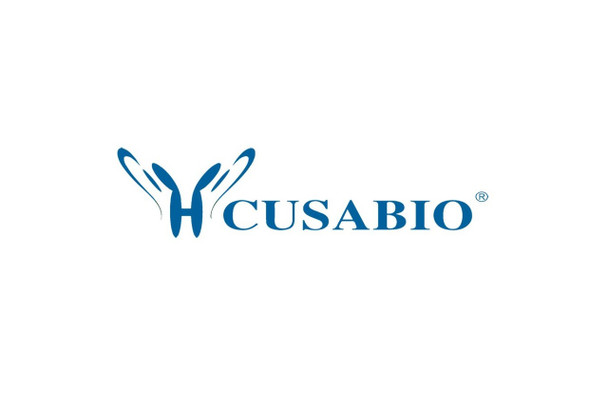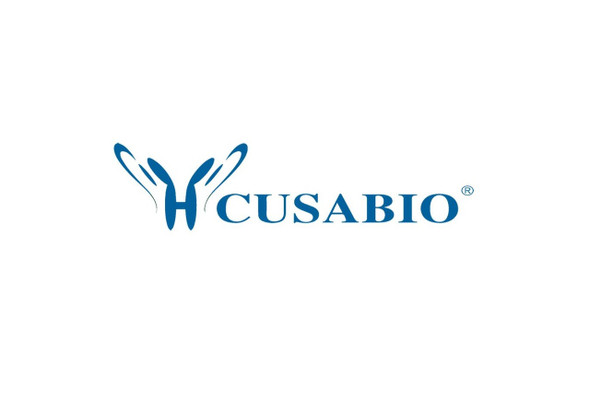Cusabio Human Recombinants
Recombinant Human Tumor necrosis factor ligand superfamily member 13B protein (TNFSF13B), partial | CSB-EP897523HU
- SKU:
- CSB-EP897523HU
- Availability:
- 13 - 23 Working Days
Description
Recombinant Human Tumor necrosis factor ligand superfamily member 13B protein (TNFSF13B), partial | CSB-EP897523HU | Cusabio
Alternative Name(s): B lymphocyte stimulator ;BLySB-cell-activating factorBAFFDendritic cell-derived TNF-like moleculeTNF- and APOL-related leukocyte expressed ligand 1 ;TALL-1; CD257
Gene Names: TNFSF13B
Research Areas: Cancer
Organism: Homo sapiens (Human)
AA Sequence: QVAALQGDLASLRAELQGHHAEKLPAGAGAPKAGLEEAPAVTAGLKIFEPPAPGEGNSSQNSRNKRAVQGPEETVTQDCLQLIADSETPTIQKGSYTFVPWLLSFKRGSALEEKENKILVKETGYFFIYGQVLYTDKTYAMGHLIQRKKVHVFGDELSLVTLFRCIQNMPETLPNNSCYSAGIAKLEEGDELQLAIPRENAQISLDGDVTFFGALKLL
Source: E.coli
Tag Info: N-terminal 6xHis-SUMO-tagged
Expression Region: 68-285aa
Sequence Info: Extracellular Domain
MW: 39.7 kDa
Purity: Greater than 90% as determined by SDS-PAGE.
Relevance: Cytokine that binds to TNFRSF13B/TACI and TNFRSF17/BCMA. TNFSF13/APRIL binds to the same 2 receptors. Together, they form a 2 ligands -2 receptors pathway involved in the stimulation of B- and T-cell function and the regulation of humoral immunity. A third B-cell specific BAFF-receptor (BAFFR/BR3) promotes the survival of mature B-cells and the B-cell response.
Reference: TALL-1 is a novel member of the TNF family that is down-regulated by mitogens.Shu H.-B., Hu W.-H., Johnson H.J. Leukoc. Biol. 65:680-683(1999)
Storage: The shelf life is related to many factors, storage state, buffer ingredients, storage temperature and the stability of the protein itself. Generally, the shelf life of liquid form is 6 months at -20?/-80?. The shelf life of lyophilized form is 12 months at -20?/-80?.
Notes: Repeated freezing and thawing is not recommended. Store working aliquots at 4? for up to one week.
Function: Cytokine that binds to TNFRSF13B/TACI and TNFRSF17/BCMA. TNFSF13/APRIL binds to the same 2 receptors. Together, they form a 2 ligands -2 receptors pathway involved in the stimulation of B- and T-cell function and the regulation of humoral immunity. A third B-cell specific BAFF-receptor (BAFFR/BR3) promotes the survival of mature B-cells and the B-cell response.
Involvement in disease:
Subcellular Location: Cell membrane, Single-pass type II membrane protein, SUBCELLULAR LOCATION: Tumor necrosis factor ligand superfamily member 13b, soluble form: Secreted
Protein Families: Tumor necrosis factor family
Tissue Specificity: Abundantly expressed in peripheral blood Leukocytes and is specifically expressed in monocytes and macrophages. Also found in the spleen, lymph node, bone marrow, T-cells and dendritic cells. A lower expression seen in placenta, heart, lung, fetal liver, thymus, and pancreas. Isoform 2 is expressed in many myeloid cell lines.
Paythway: NF-kappaBsignalingpathway
Form: Liquid or Lyophilized powder
Buffer: If the delivery form is liquid, the default storage buffer is Tris/PBS-based buffer, 5%-50% glycerol. If the delivery form is lyophilized powder, the buffer before lyophilization is Tris/PBS-based buffer, 6% Trehalose, pH 8.0.
Reconstitution: We recommend that this vial be briefly centrifuged prior to opening to bring the contents to the bottom. Please reconstitute protein in deionized sterile water to a concentration of 0.1-1.0 mg/mL.We recommend to add 5-50% of glycerol (final concentration) and aliquot for long-term storage at -20?/-80?. Our default final concentration of glycerol is 50%. Customers could use it as reference.
Uniprot ID: Q9Y275
HGNC Database Link: HGNC
UniGene Database Link: UniGene
KEGG Database Link: KEGG
STRING Database Link: STRING
OMIM Database Link: OMIM









